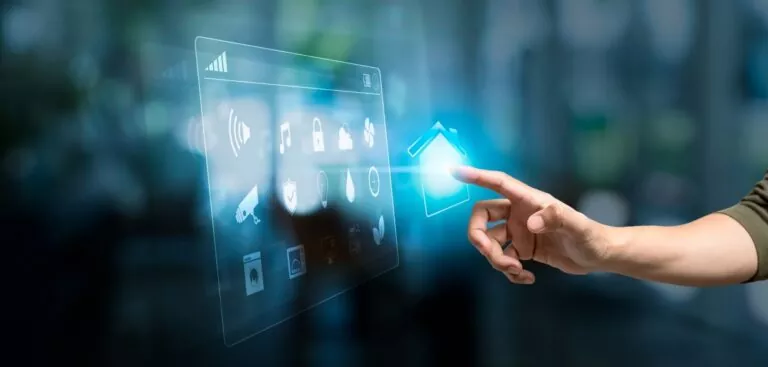
5 ways IoT is transforming the industries
The term Internet of things (IoT) is a relatively new term that might sound fascinating, but you might think it is not an important concept for someone who owns a business unrelated to the tech world. But you’ll be surprised how the Internet of things or IoT is changing the way all industries function.
“IoT acts as an interconnection via the Internet of digital devices, enabling them to send and receive data to a computer. ”
An International Data Corporation (IDC) survey predicts that there will be 55.7 billion connected devices worldwide by 2025, 75% will be connected to an IoT platform. Thus, in the near future of IoT trends towards major expansion in the next few decades.
One of the industries IoT is helping transform is the cleaning business industry.
Manufacturers of cleaning devices are integrating IoT into their products to keep an eye on the run-time of their machines, verify the movements of their machines, and see how long they last. For example, IoT can let a building contractor who sells soap dispensers know if they’ve been filled and allow them to monitor the specific area’s hygiene level.
By organizing cleaning tasks and getting updates on the efficiency of their cleaning equipment, IoT can help cleaning businesses streamline their customer service models. Here’s why different types of cleaning services are upgrading their services with IoT:
IoT helps you plan better
Information is the key to solving most business problems. IoT provides valuable insight into gauging how you can change your business so that you’re generating less waste and working with more efficiency.
Here’s an example — IoT can help you with efficient trash disposal. IoT enabled trash bins can communicate the fill level and location with the sanitation department, saving them unnecessary pick-ups.
IoT gives you the gift of robot cleaners
Next-generation vacuums and robotic cleaners can use smart technology, GPS tracking, and sensors to navigate and clean independently. These devices also collect information about the work performed, the time it took them to perform it, maintenance issues for better insights into what is working and what is not.
IoT helps cut down operational cost
IoT enabled devices can help companies monitor usage patterns and plan their cleaning schedules accordingly.
For example, if the soap dispensers in washrooms are IoT enabled, then they can communicate with a central system if they’re running low. When real-time information is available on hand, the cleaning staff can know when they need to be refilled and also track usage patterns.
IoT helps with predictive maintenance
Maintenance is scheduled at regular time periods for any electronic equipment, but IoT has a huge advantage here. It collects data, and diagnoses problems, and transmits them in real-time to predict and enable maintenance before a problem gets too big and the device stops working completely. This has great potential to decrease downtime as well as maintenance expenses.
For example, services like Zuper’s cleaning business software offer you all the services you need as a cleaning business owner, like a built-in booking application and real-time location tracking for your employees. It also lets you create on-demand maintenance plans for your cleaning services.
In fact, with services like these, a Markets and Markets report states that the predictive maintenance market is estimated to jump to $12 billion by 2025 from the current $4 billion in 2020.
IoT helps with analyzing data
As more and more IoT devices become a part of the cleaning industry, a cleaning business will have a huge amount of data in its hand that it can analyze and plan accordingly.
For example, a company can receive data on the use of every cleaning tool, be it scrubbers, dispensers, repellents, or bins, and analyze the patterns of use and time taken to complete tasks and usage patterns. This data can be used according to predictions received through analysis.
IoT capable machines are streamlining the cleaning industry and making it smarter. In addition, predictive analytics that can help businesses save money, time and streamline their workflow can lead to a better customer experience and a lucrative turnover for the company.
https://www.aiiottalk.com/iot-is-transforming-the-industries/



